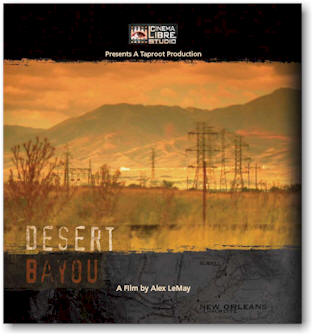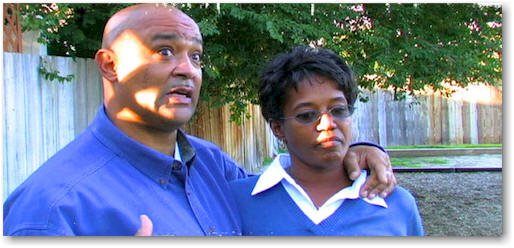Desert Bayou
Master P Produces Provocative Post-Katrina
Documentary
 Desert Bayou
Desert Bayou
Unrated
Running time: 90 minutes
Studio: Cinema Libre Studio
Film Review by Kam Williams
Excellent (4 stars)
In the wake of Hurricane Katrina, the mainstream media flooded the airwaves with reports about how the displaced residents of the Gulf Region were being welcomed with open arms by fellow Americans all across the country. One of those feelgood stories involved Utah, where some 600 evacuees from New Orleans were supposedly being integrated into the mostly-Mormon Salt Lake City community.
Now, thanks to Desert Bayou, directed by Alex LeMay, we're belatedly learning the rest of the story, and the sad truth is that this contingent of refugees were treated horribly upon their arrival. First of all, they had been herded onto a plane without being informed of their destination.
Upon landing, they were not ushered to a functioning metropolis but to Camp Williams, an abandoned National Guard base in the desert used only as an artillery range. As for the closest city, Salt Lake is 45 minutes away, and the mayor there hastily announced the imposition of a nightly curfew on the recent arrivals, this to ensure that all these new African-American citizens would be out of his lily-white town after sundown.
It’s important to remember that according to pro-slavery founder of the Church of Latter Day Saints Joseph Smith, black skin was a sign of being cursed, which explains why one of the religion’s tenets forbade the baptizing of blacks. Needless to say, the move to the class="img-responsive center-block" Mormon-dominated region proved to be rather problematic for most of those airlifted there, and that unfortunate nightmare is painstakingly recounted in Desert Bayou.

The picture was produced by hip-hop impresario Master P, a New Orleans native whose own parents were among the Katrina victims taken to Utah without their consent or any understanding of what they were getting into. Lucky for them, their son had the money to fly to Salt Lake to rescue them from racist treatment reminiscent of the country’s dark days of Jim Crow segregation.
A damning documentary which exposes FEMA’s wholesale failings while depicting a nation still deep in denial and willing to look the other way despite the ongoing suffering of a long-marginalized segment of society.
Related Links
Blacktrospective 2007 Annual Look Back at the Best (and Worst) in Black
Cinema
http://aalbc.com/reviews/blacktrospective_2007.htm
